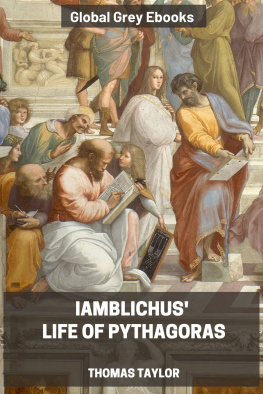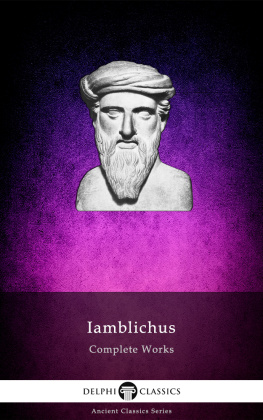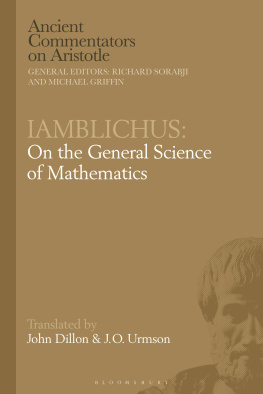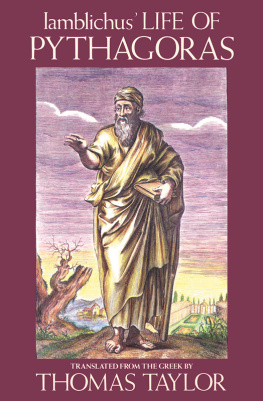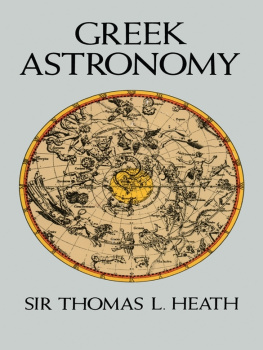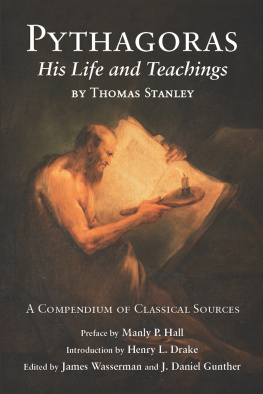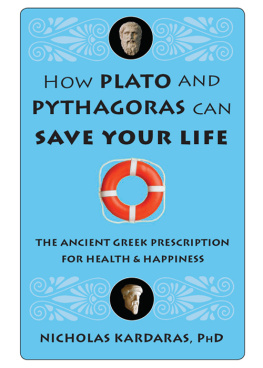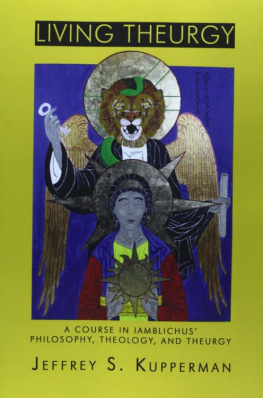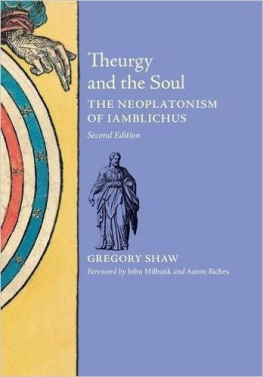Thomas Taylor - Iamblichus Life of Pythagoras
Here you can read online Thomas Taylor - Iamblichus Life of Pythagoras full text of the book (entire story) in english for free. Download pdf and epub, get meaning, cover and reviews about this ebook. year: 2021, publisher: Global Grey, genre: Science. Description of the work, (preface) as well as reviews are available. Best literature library LitArk.com created for fans of good reading and offers a wide selection of genres:
Romance novel
Science fiction
Adventure
Detective
Science
History
Home and family
Prose
Art
Politics
Computer
Non-fiction
Religion
Business
Children
Humor
Choose a favorite category and find really read worthwhile books. Enjoy immersion in the world of imagination, feel the emotions of the characters or learn something new for yourself, make an fascinating discovery.
- Book:Iamblichus Life of Pythagoras
- Author:
- Publisher:Global Grey
- Genre:
- Year:2021
- Rating:5 / 5
- Favourites:Add to favourites
- Your mark:
- 100
- 1
- 2
- 3
- 4
- 5
Iamblichus Life of Pythagoras: summary, description and annotation
We offer to read an annotation, description, summary or preface (depends on what the author of the book "Iamblichus Life of Pythagoras" wrote himself). If you haven't found the necessary information about the book — write in the comments, we will try to find it.
Iamblichus Life of Pythagoras — read online for free the complete book (whole text) full work
Below is the text of the book, divided by pages. System saving the place of the last page read, allows you to conveniently read the book "Iamblichus Life of Pythagoras" online for free, without having to search again every time where you left off. Put a bookmark, and you can go to the page where you finished reading at any time.
Font size:
Interval:
Bookmark:

Iamblichus' Life of Pythagoras
by Thomas Taylor
First published in 1818
The artwork for the cover is The School of Athens
painted by Raphael.
You can download this book on the site:
globalgreyebooks.com/iamblichus-life-of-pythagoras-ebook.html

GlobalGrey 2021
globalgreyebooks.com
When it is considered that Pythagoras was the father of philosophy, authentic memoirs of his life cannot fail to be uncommonly interesting to every lover of wisdom, and particularly to those who reverence the doctrines of Plato, the most genuine and the best of all his disciples. And that the following memoirs of Pythagoras by Iamblichus are authentic, is acknowledged by all the critics, as they are for the most part obviously derived from sources of very high antiquity; and where the sources are unknown, there is every reason to believe, from the great worth and respectability of the biographer, that the information is perfectly accurate and true.
Of the biographer, indeed, Iamblichus, it is well known to every tyro in Platonism that he was dignified by all the Platonists that succeeded him with the epithet of divine; and after the encomium passed on him by the acute Emperor Julian, that he was posterior indeed in time, but not in genius, to Plato, all further praise of him would be as unnecessary, as the defamation of him by certain modern critics is contemptible and idle. For these homonculi looking solely to his deficiency in point of style, and not to the magnitude of his intellect, perceive only his little blemishes, but have not even a glimpse of his surpassing excellence. They minutely notice the motes that are scattered in the sunbeams of his genius, but they feel not its invigorating warmth, they see not its dazzling radiance.
Of this very extraordinary man there is a life extant by Eunapius, the substance of which I have given in my History of the Restoration of the Platonic Theology, and to which I refer the English reader. At present I shall only select from that work the following biographical particulars respecting our Iamblichus: He was descended of a family equally illustrious, fortunate, and rich. His country was Chalcis, a city of Syria, which was called Cle. He associated with Anatolius who was the second to Porphyry, but he far excelled him in his attainments, and ascended to the very summit of philosophy. But after he had been for some time connected with Anatolius, and most probably found him insufficient to satisfy the vast desires of his soul, he applied himself to Porphyry, to whom (says Eunapius) he was in nothing inferior, except in the structure and power of composition. For his writings were not so elegant and graceful as those of Porphyry: they were neither agreeable, nor perspicuous; nor free from impurity of diction. And though they were not entirely involved in obscurity, and perfectly faulty; yet as Plato formerly said of Xenocrates, he did not sacrifice to the Mercurial Graces. Hence he is far from detaining the reader with delight, who merely regards his diction; but will rather avert and dull his attention, and frustrate his expectation. However, though the surface of his conceptions is not covered with the flowers of elocution, yet the depth of them is admirable, and his genius is truly sublime. And admitting his style to abound in general with those defects, which have been noticed by the critics, yet it appears to me that the decision of the anonymous Greek writer respecting his Answer to the Epistle of Porphyry,
Iamblichus shared in an eminent degree the favor of divinity, on account of his cultivation of justice; and obtained a numerous multitude of associates and disciples, who came from all parts of the world, for the purpose of participating the streams of wisdom, which so plentifully flowed from the sacred fountain of his wonderful mind. Among these was Sopater the Syrian, who was most skilful both in speaking and writing; Eustathius the Cappadocian; and of the Greeks, Theodorus and Euphrasius. All these were excellent for their virtues and attainments, as well as many other of his disciples, who were not much inferior to the former in eloquence; so that it seems wonderful how Iamblichus could attend to all of them, with such gentleness of manners and benignity of disposition as he continually displayed.
He performed some few particulars relative to the veneration of divinity by himself, without his associates and disciples; but was inseparable from his familiars in most of his operations. He imitated in his diet the frugal simplicity of the most ancient times; and during his repast, exhilarated those who were present by his behaviour, and filled them as with nectar by the sweetness of his discourse.
A celebrated philosopher named Alypius, who was deeply skilled in dialectic, was contemporary with Iamblichus, but was of such a diminutive stature, that he exhibited the appearance of a pigmy. However, his great abilities amply compensated for this trifling defect. For his body might be said to be consumed into soul; just as the great Plato says, that divine bodies, unlike those that are mortal, are situated in souls. Thus also it might be asserted of Alypius, that he had migrated into soul, and that he was contained and governed by a nature superior to man. This Alypius had many followers, but his mode of philosophizing was confined to private conference and disputation, without committing any of his dogmas to writing. Hence his disciples gladly applied themselves to Iamblichus, desirous to draw abundantly from the exuberant streams of his inexhaustible mind. The fame therefore of each continually increasing, they once accidentally met like two refulgent stars, and were surrounded by so great a crowd of auditors, that it resembled some mighty musum. While Iamblichus on this occasion waited rather to be interrogated, than to propose a question himself, Alypius, contrary to the expectation of every one, relinquishing philosophical discussions, and seeing himself surrounded with a theatre of men, turned to Iamblichus, and said to him: Tell me, O philosopher, is either the rich man unjust, or the heir of the unjust man? For in this case there is no medium. But Iamblichus hating the acuteness of the question, replied: O most wonderful of all men, this manner of considering, whether some one excels in externals, is foreign from our method of philosophizing; since we inquire whether a man abounds in the virtue which it is proper for him to possess, and which is adapted to a philosopher. After he had said this he departed, and at the same time all the surrounding multitude was immediately dispersed. But Iamblichus, when he was alone, admired the acuteness of the question, and often privately resorted to Alypius, whom he very much applauded for his acumen and sagacity; so that after his decease, he wrote his life. This Alypius was an Alexandrian by birth, and died in his own country, worn out with age: and after him Iamblichus, leaving behind him many roots and fountains of philosophy; which through the cultivation of succeeding Platonists, produced a fair variety of vigorous branches, and copious streams.
For an account of the theological writings of Iamblichus, I refer the reader to my above-mentioned History of the Restoration of the Platonic Theology; and for accurate critical information concerning all his works, to the Bibliotheca Grca of Fabricius.
Of the following work, the life of Pythagoras, it is necessary to observe that the original has been transmitted to us in a very imperfect state, partly from the numerous verbal errors of the text, partly from the want of connexion in the things that are narrated, and partly from many particulars being related in different places, in the very same words; so that the conjecture of Kuster, one of the German editors of this work is highly probable, that it had not received the last hand of Iamblichus, but that others formed this treatise from the confused materials which they found among his Manuscripts, after his death. Notwithstanding all its defects, however, it is, as I have before observed, a most interesting work; and the benefits are inestimable, which the dissemination of it is calculated to produce. And as two of the most celebrated critics among the Germans, Kuster and Kiessling, have given two splendid editions of this work, it is evident they must have been deeply impressed with a conviction of its value and importance.
Next pageFont size:
Interval:
Bookmark:
Similar books «Iamblichus Life of Pythagoras»
Look at similar books to Iamblichus Life of Pythagoras. We have selected literature similar in name and meaning in the hope of providing readers with more options to find new, interesting, not yet read works.
Discussion, reviews of the book Iamblichus Life of Pythagoras and just readers' own opinions. Leave your comments, write what you think about the work, its meaning or the main characters. Specify what exactly you liked and what you didn't like, and why you think so.

